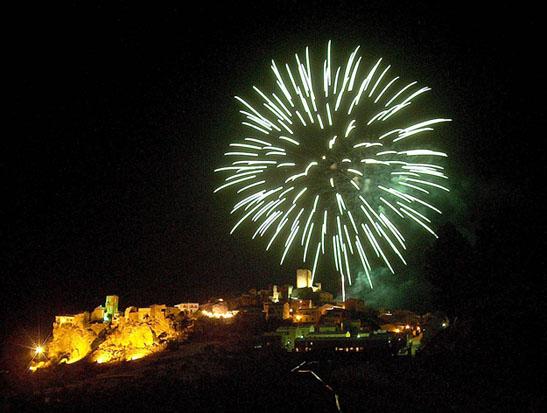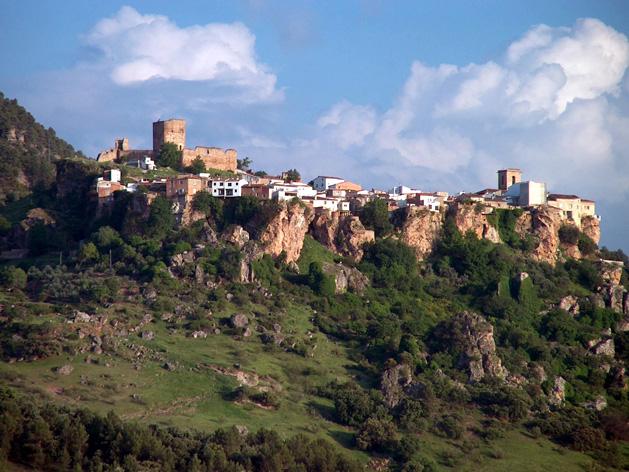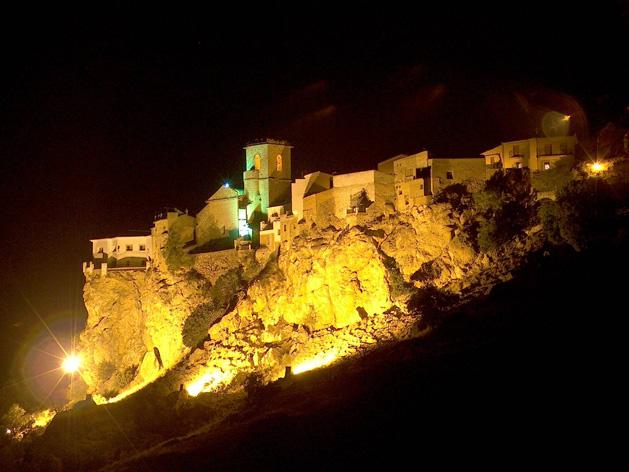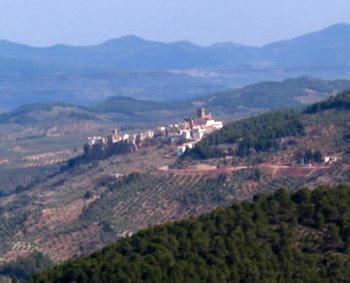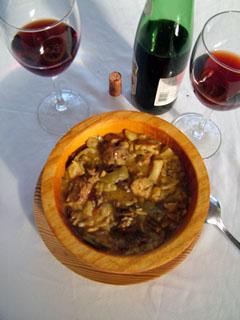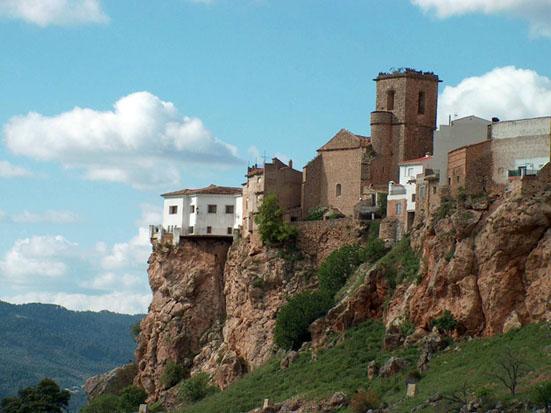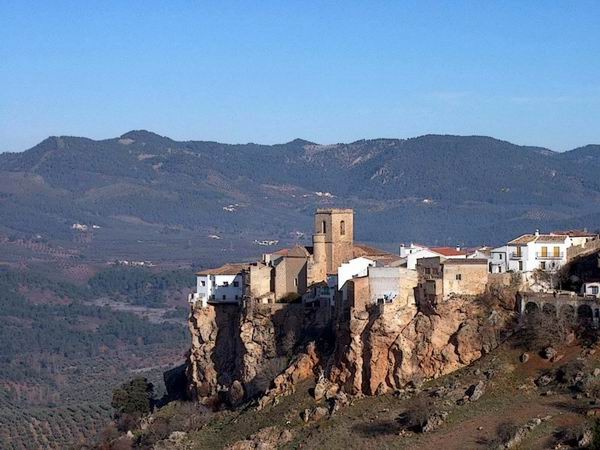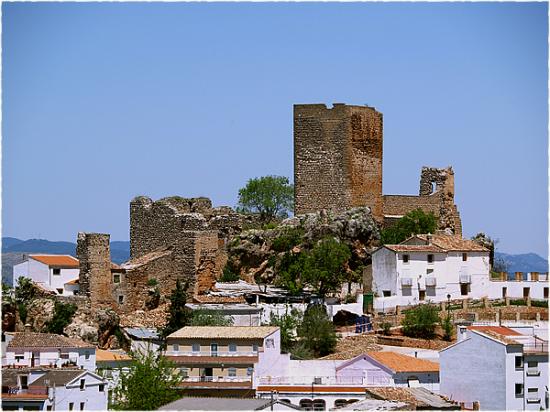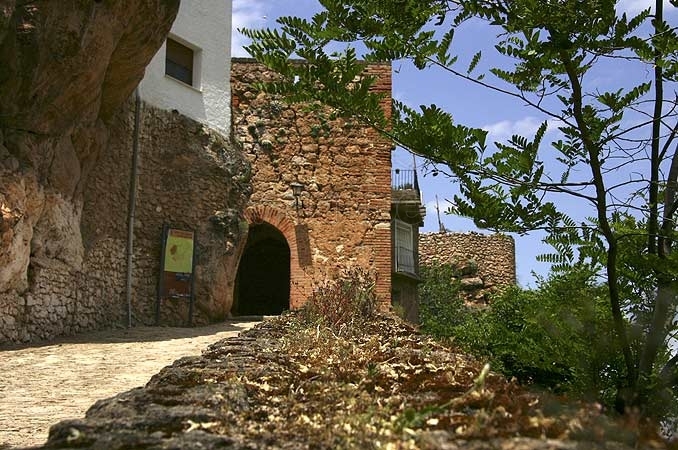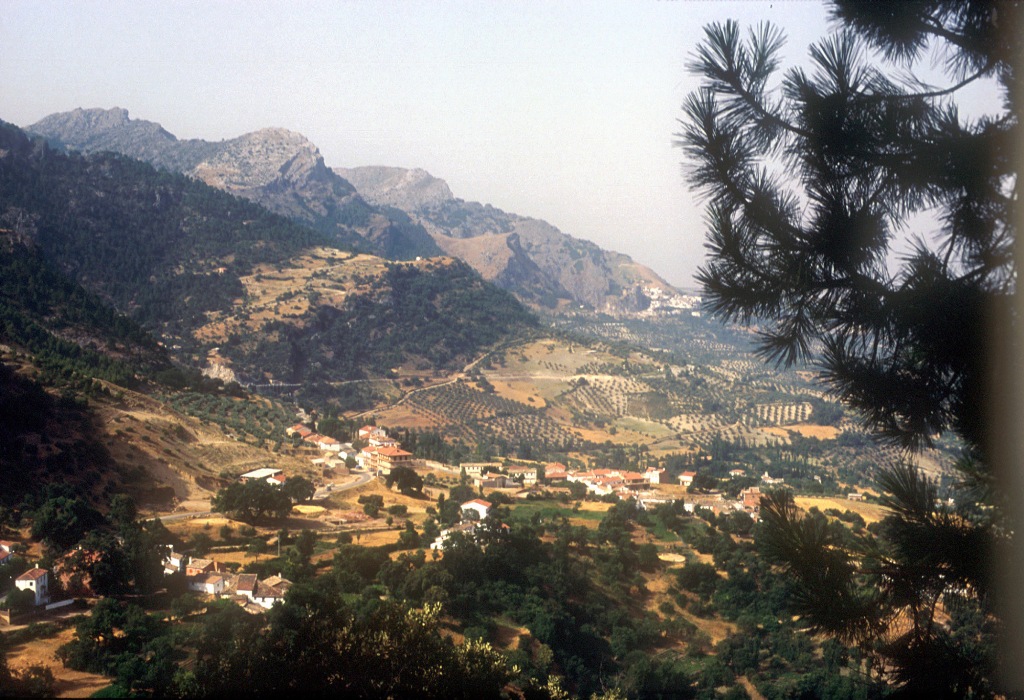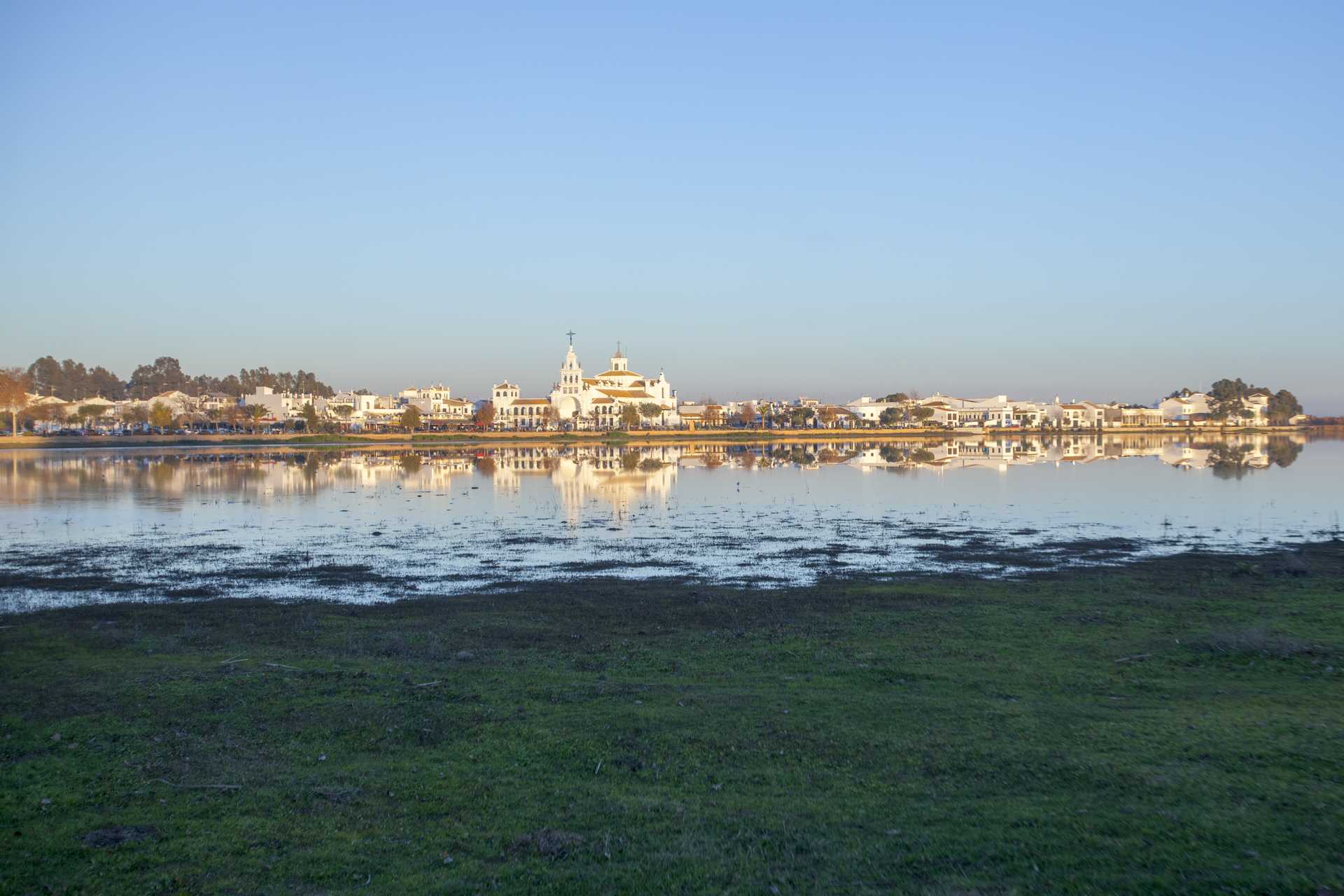Hornos
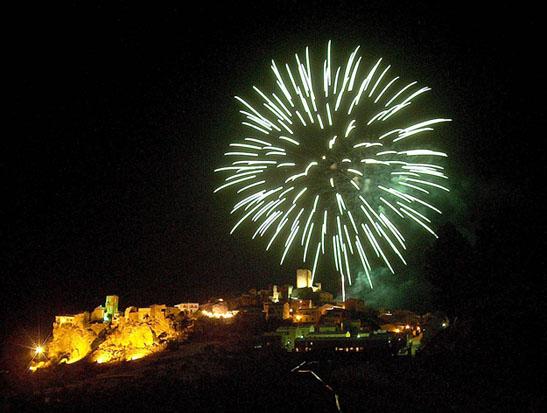
This little and beautiful village is situated to the north east of the province, in the midst of the Sierra de Segura Mountains, over a hill from where we have a spectacular view of the Tranco de Beas reservoir and the beginning of the Guadalquivir valley. The village spreads around the Castle, inside a walled area, where we must also mention the Church of Nuestra Señora de la Asunción.
Its municipal district is included in the Sierras de Cazorla, Segura and Las Villas National Park, the largest protected natural space in Spain: an orographic labyrinth of valleys, calares, gorges, mountains and flat lands of enormous hydrological importance (due to the numerous rivers and streams which spring within the Park); of great botanical importance (different varieties of pine trees and a lot of endemic species); it is also important aesthetically and from a wildlife point of view. Because of this it is one of the most visited and frequented natural spaces in the country.
History
The origin of the village is apparently pre-roman.
The Tranco de Beas Reservoir furthest stretches lie at its feet, reservoir that flooded the old estate of Bujaraiza and the best lands of the village.
The Christian conquest was carried out by the Knights of the Order of Santiago. It was granted Village Charter by King Fernando III in the first half of the 13th century and belonged to the Encomienda de Segura.
In 1446, the village was besieged by the Chief Commander of the Castile and Leon Kingdom, sent by King Juan II to subdue Don Rodrigo Manrique, Lord of Segura, who had proclaimed himself Master of the Order; the Castilian troops were defeated.

- Max 33
- Min 29
- Max 91
- Min 84
- °C
- °F

